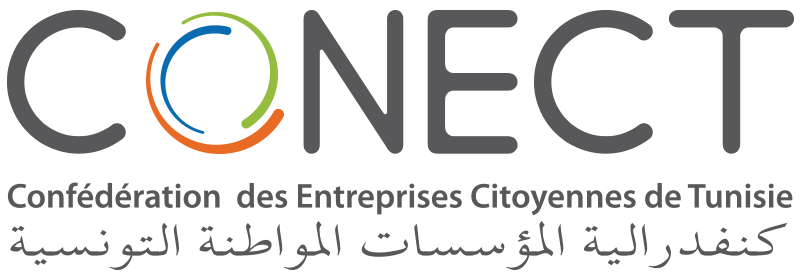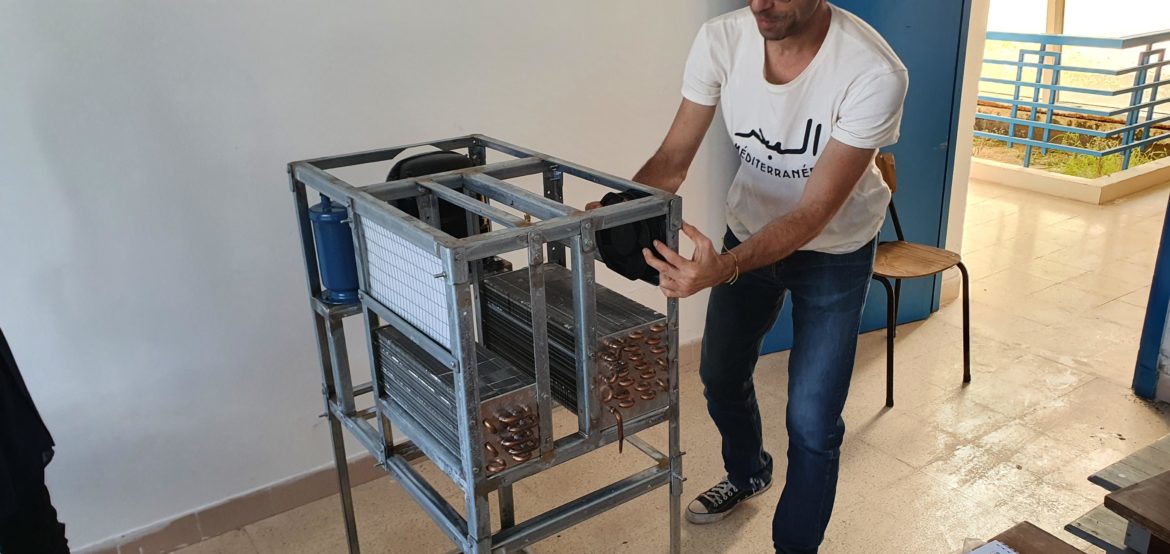Water vapour can be condensed and disinfected to produce chilled water. This is the solution provided by Kumulus, a Tunisian start-up that is receiving training support under the GIMED project, leaded by the Regional Activity Center for Sustainable Consumption and Production. The early-stage initiative is managed by Mohamed Ali Abid, an engineer specialised in renewable energy with a background of experience in power plants design, construction and commissioning. By obtaining drinking water through the humidity in the air, the project achieves an environmentally friendly alternative to traditional bottled water.
According to the Agence Française de Développement, in Tunisia there is some difficulty in accessing to clean water in rural areas. Nevertheless, around 97% of Tunisian urban areas have access to improved water, which is probably ok to drink. It is true, though, that the safety of drinking water in any place depends on local factors and bottled water has become a cheap and easy to find. In fact, out of all the countries in the world, Tunisia is in the 11th place in the consumption of bottled water.
“Our water is collected, filtered and mineralized in order to ensure the user’s safety”, explained Mohamed Ali Abid. How are they tackling this issue? Kumulus is designing and manufacturing atmospheric water generations (AWG). The AWG is a device that extracts water from humid ambient air. Then, water vapour in the air extracted by condensation, cooled below its dew point, exposing the air to desiccants or pressurizing the air. Unlike a dehumidifier, an AWG is designed to render the water drinkable.
“Thanks to GIMED’s training, green innovators have the chance to translate their potential ideas into flourishing environmental start-ups”
The Tunisian entrepreneur has been involved with the ENI CBC MED Programme since his selection. He could assume that it was an agreeable and worthwhile experience that helped him defining his business target, working on his prototype and identifying a suitable niche to start selling. “Thanks to GIMED’s training, green innovators have the chance to translate their potential ideas into flourishing environmental start-ups”, he said.
Kumulus reached to identify local partners and appointed its own business model. They had to deal with local supply chain and find reliable subcontractors, the biggest challenges they had to face before receiving the support of GIMED through the the Confédération des Entreprises Citoyennes de Tunisie (Conect), the Tunisian partner of GIMED. Mohamed followed the training sessions between September and November 2021 in order to define its business target. “My biggest achievement was the first water drops that came out of the prototype. This moment was definitely magical, even though a long way is still to be walked”, he recognised.




